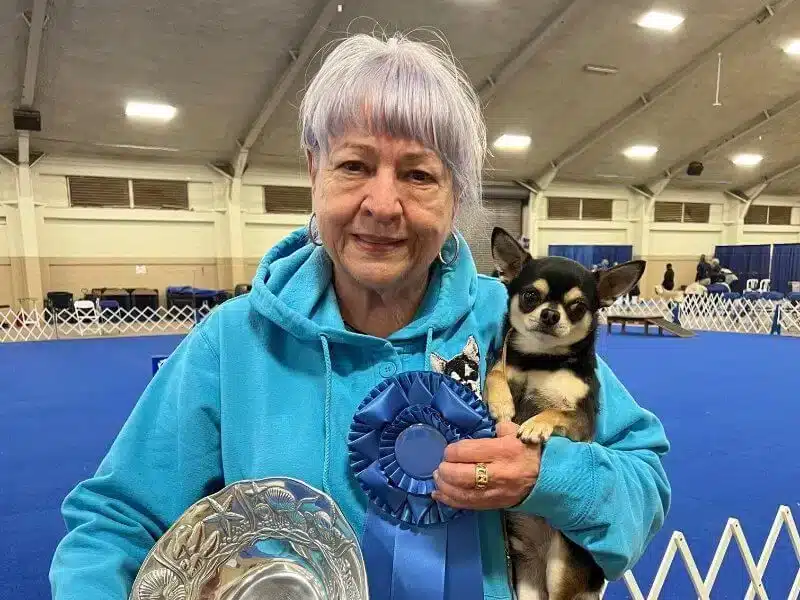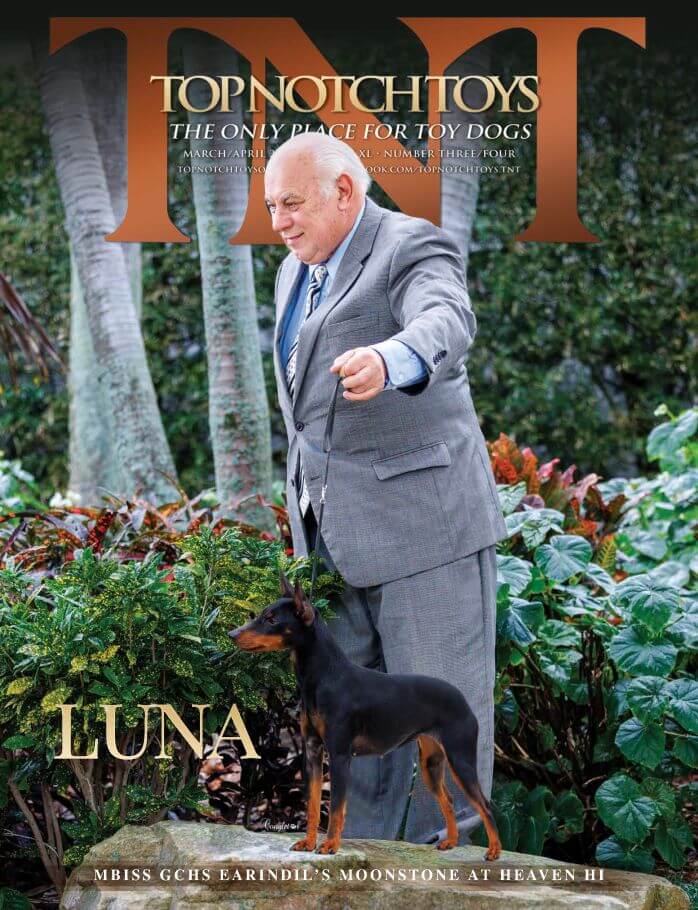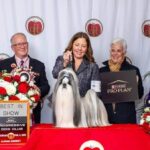Interview with Barbara K. (Kathy) Smith, Breeder of BK’S Chihuahuas
Where do I live? How many years in dogs? How many years as a breeder?
Barbara Smith: I now live in Perris, California, but was in Arizona for many years. I bred my first litter in 1981 and finished my first champion Chihuahua in 1989.
What is my kennel name? How many dogs do I currently keep?
Barbara Smith: My kennel name is BK’S Chihuahuas. I currently keep four to six dogs with me and have a few more with co-owners.
Which show dogs from the past have been my noteworthy winners?
Barbara Smith: My longtime handler and now co-owner, Conni Robinson, and I have finished over 350 champions over the years. Many have been in the Top 10, some for years. The current No. 1 Smooth Chihuahua, BIS BISS GCHG BK’S Conemara El Cid, is our top winner now.
Which have been my most influential sires and dams?
Barbara Smith: Many have been winners and top producers. Early ones were CH BK’S Bo Knows and CH BK’S King CoIon, CH BK’S Imax, and CH BK’S Doctor DoliIle.
The recent outstanding sire, GCHP BK’S Wild About Harry, is still present in 2023 winners at many Specialties and at Westminster. Some notable top-producing and top-winning bitches have been CH BK’S JoseIe Jocal, CH BK’S N Sandman Know It All, and GCHB Mar-Rich’s Girls Lie Too.
Can I talk a bit about my facilities? Where are my puppies whelped? How are they raised?
Barbara Smith: I have always kept my dogs in my home, bred and whelped in my kennel room or in my bedroom. They are raised in my family room. I was very fortunate to have an excellent vet and friend always a phone call away.
What is my “process” for selecting Show Puppies? Performance Puppies?
Barbara Smith: I evaluate pups for show prospects at 12 weeks and again at 6 months. I know how my line grows so well that I can usually tell a “keeper.” I never would sell or place a younger puppy.
How important are Breed Specialties to me? How important are Group Shows?
Barbara Smith: The Specialties are a great place to show off your successful sires and dams. It is gratifying to win Best Stud Dog and Best Brood Bitch competitions. Winning in the Group is important for showing the world a great dog. It is supposed to illustrate how close your dog is to the ideal for his breeding.
What are my priorities when it comes to breeding? What are the drawbacks?
Barbara Smith: I believe in reading and evaluating pedigrees before breeding any pair, and comparing the visual of the dogs on them. I am aware of the need for C-sections in this breed and I make sure that I have help available on the due dates. Finding the right veterinary support is vital. Litters are, on average, one to three puppies and the vet costs are very high. Sometimes pups need extra care, warmth, tube feeding, and hydration to survive. Learn to meet those needs.
How would I define “conditioning” as it relates to my breed? How important is coat care?
Barbara Smith: Conditioning is just as important for the little guys as for the larger ones. They need room to run and regular exercise. Fresh water must be available at all times. Good nutrition is key for muscle tone as well as the needed calcium levels for reproducing. I feed a popular, well-tested kibble. Good coats come from good nutrition and good regular care, brushing, and baths. I believe in limited crate time and NO wire floors.
Are there any health-related concerns in my breed? Any special nutritional needs?
Barbara Smith: Cleaning teeth is a regular chore, as tooth bacteria can lead to heart problems. Chihuahua heart checks should be done. Some Chihuahuas have luxating patellas and that should always be vet checked. They can be finicky eaters and may train you to feed them people food. They need good dog nutrition only.
Do I think my breed is supported by a sufficient number of preservation breeders?
Barbara Smith: There is always room for more serious preservation breeders, but we are blessed with several.
Is my breed well suited to be a family dog? Who are the best candidates to own my breed?
Barbara Smith: Properly raised Chihuahuas can make great family pets. There is a risk that they can be hurt in play with children. They make excellent family pets with proper training and socialization… of the children.
What is the biggest misconception about my breed? What is my breed’s best-kept secret?
Barbara Smith: Our dogs are often seen as yappy little biters. They can be, but with good breeding, good socialization, and training they make excellent loyal companions.
If I could share a comment or two with judges of my breed, what would I like to say to them?
Barbara Smith: Size matters. There are some oversized dogs showing. If in doubt, weigh them. Exhibitors are shy to call them out. Also remember, puppies can change. Their bites can change, and in our breed, type is an absolute requirement.
Do I have any words of wisdom to pass along to newer breeders? Learn to read pedigrees.
Barbara Smith: Watch lots of shows, and not just your own breed. Develop an eye for what is good. Network with other breeders if you can, and especially, find a good mentor. Try to find handling classes. Join a local club. You will find that many people will want to help you. Listen to everyone, but make your own choices based on what you learn. Get in there and try showing.
For a bit of fun, what’s the most amusing thing I’ve ever experienced with a Toy Dog?
Barbara Smith: Years ago, I brought out a retired long coat bitch to show at the National. Her owner had cancer and wanted to see her. Her original handler was Conni, and she showed for her like a dream, taking Best Veteran in Show. As they left the ring, she held back and stacked for the judge. The judge asked her to take a “victory lap” because she was so happy, at 11 years old, to be in the ring again.









